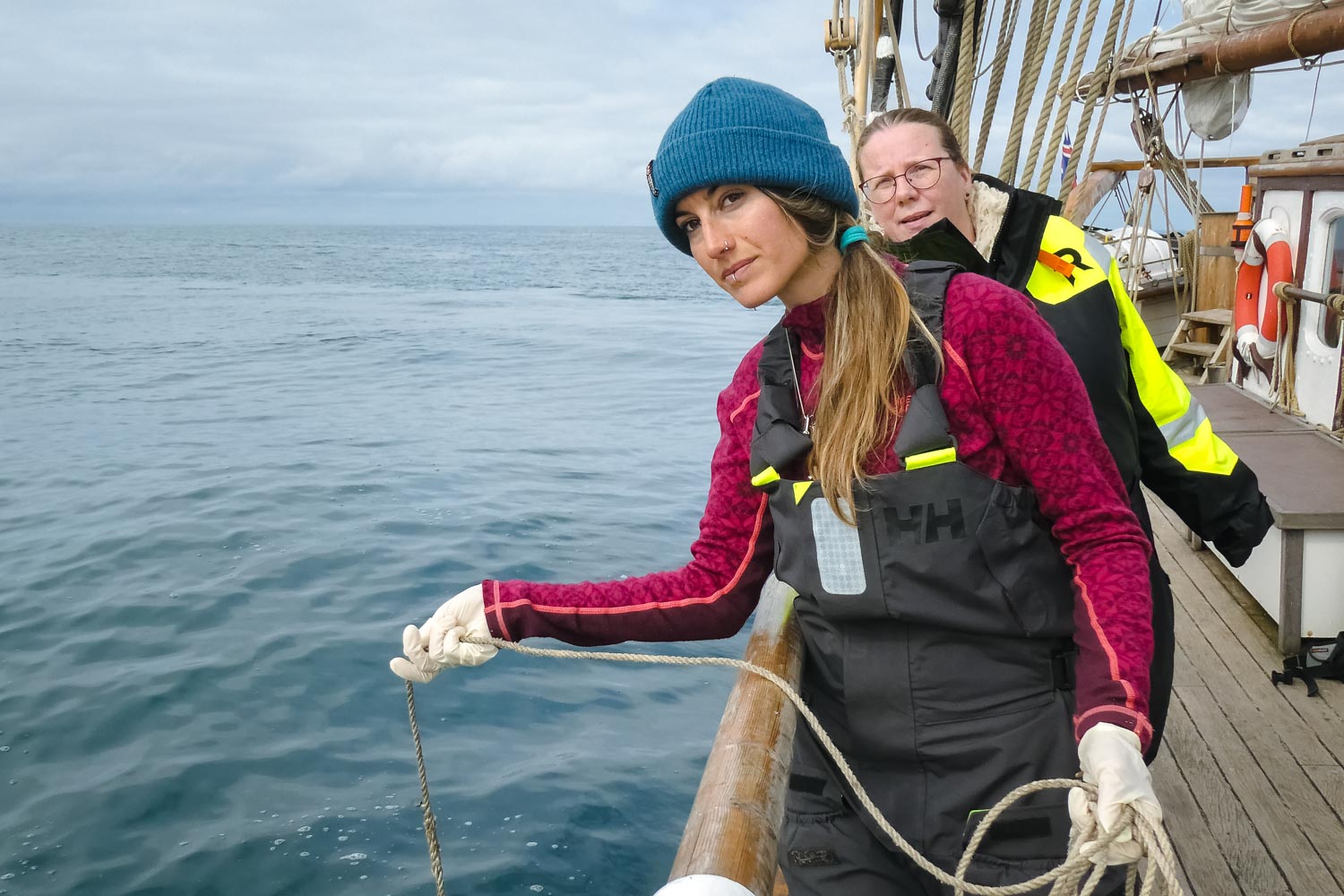Studying whales in a drop of seawater
In an exciting development, new scientific research is being carried onboard our whale watching boats. We are delighted to share the news about an inspiring collaboration between the University of Iceland and North Sailing to collect water samples during our regular whale watching tours for the first environmental DNA studies in seawater conducted from whale watching vessels in Iceland.
The e-WHALE project
The e-WHALE project is funded by Biodiversa+ and is a transnational research project involving seven countries. It unites researchers, industry partners, and the public across Europe to implement a novel strategy for marine biodiversity monitoring. e-WHALE combines environmental DNA sampling, whale watching, and citizen science for stakeholder-driven marine biodiversity protection in the North-East Atlantic and the Mediterranean. This project was successfully chosen for funding out of 209 applications, along with 35 other international projects.
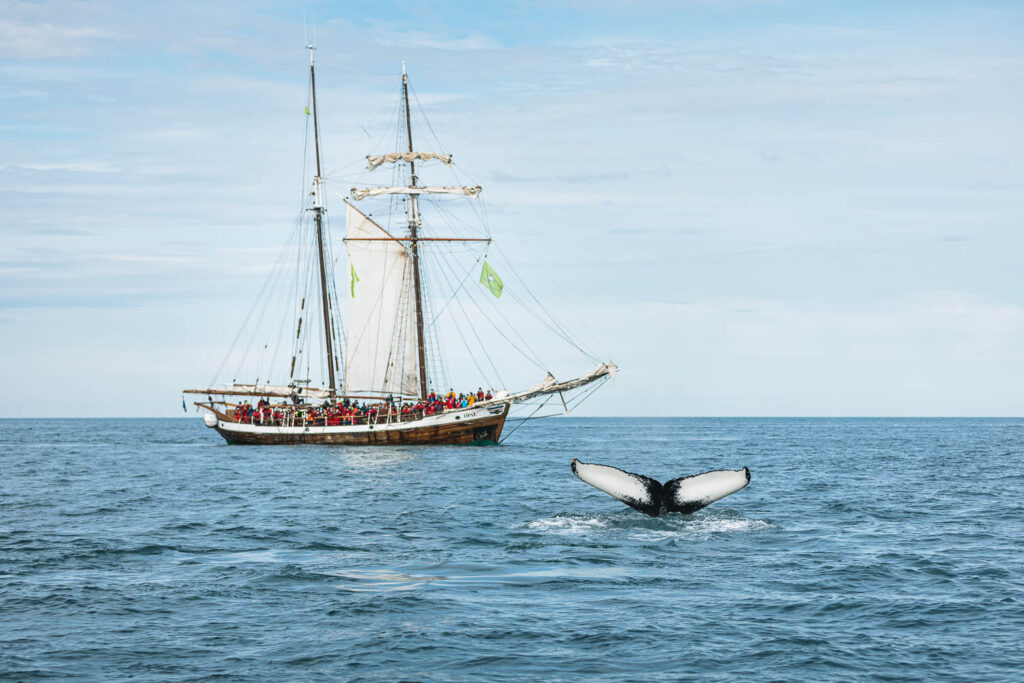
Environmental DNA used to monitor whales
Studying environmental DNA allows researchers to better identify marine species, including rare or threatened species that are otherwise difficult to detect. This approach also enables the study of family groups, their diets, and possibly even individual organisms within a population.
As organisms live and move within their aquatic habitat, they leave behind a trail of shed cells, skin, waste, and mucus. When this innovative technique is employed, it becomes possible to identify the entire range of biodiversity (from the smallest to the largest, including plants) in a single drop of seawater. This is achieved through the analysis of eDNA contained in water samples using molecular biology. Researchers believe this method can be an effective, cost-efficient, and accessible way to study underwater life, making it a keystone for marine conservation.
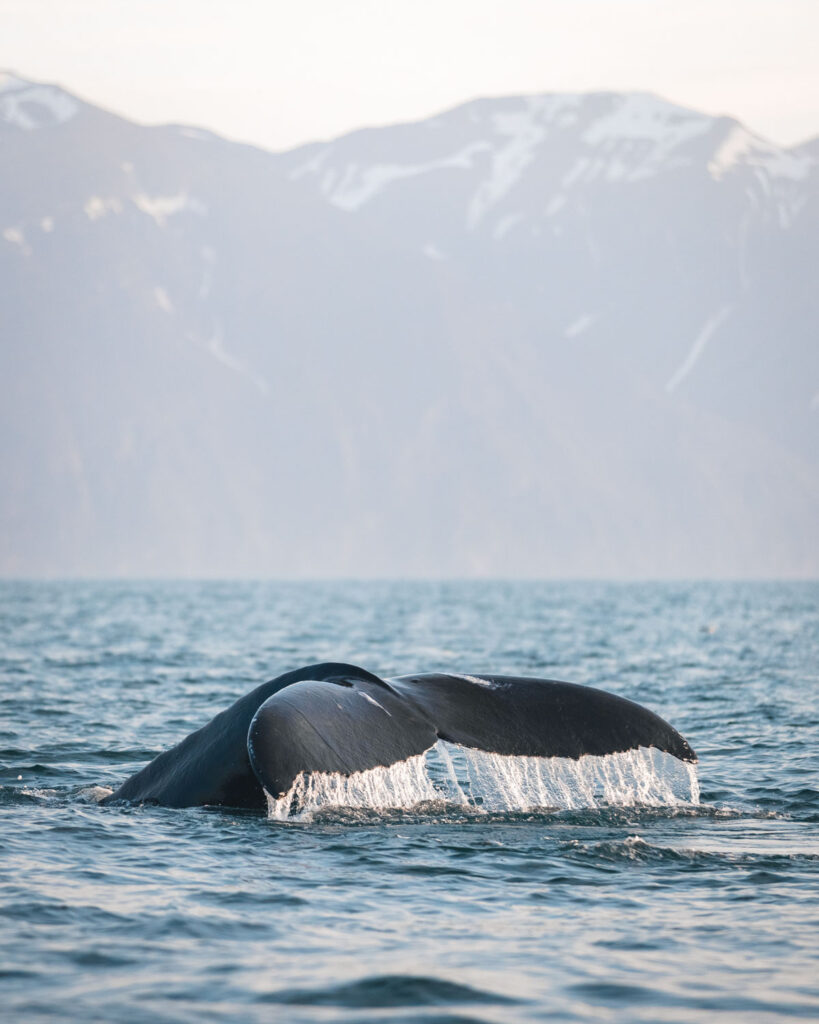
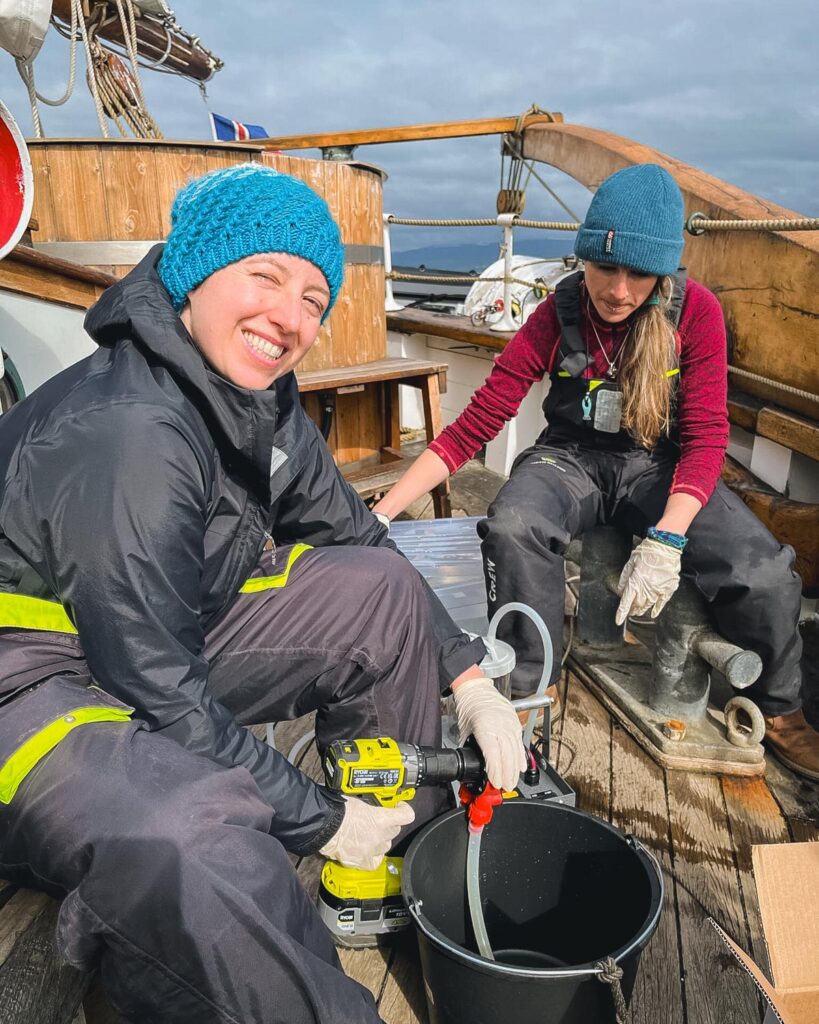
North Sailing is an active partner of e-WHALE project
The daily North Sailing whale watching departures in Skjálfandi Bay offers the perfect opportunity for researchers to access data collection in an easy manner. The first part of this three-year project aims to investigate whether researchers can detect whale DNA from the trail of the whales, also called a ‘fluke print’ (the mark they leave when they go for a dive). For this reason, during the past summer and continuing into the next year, two researchers have been joining two times a week on regular Whale Watching and Whale Sails and Science tours on board.
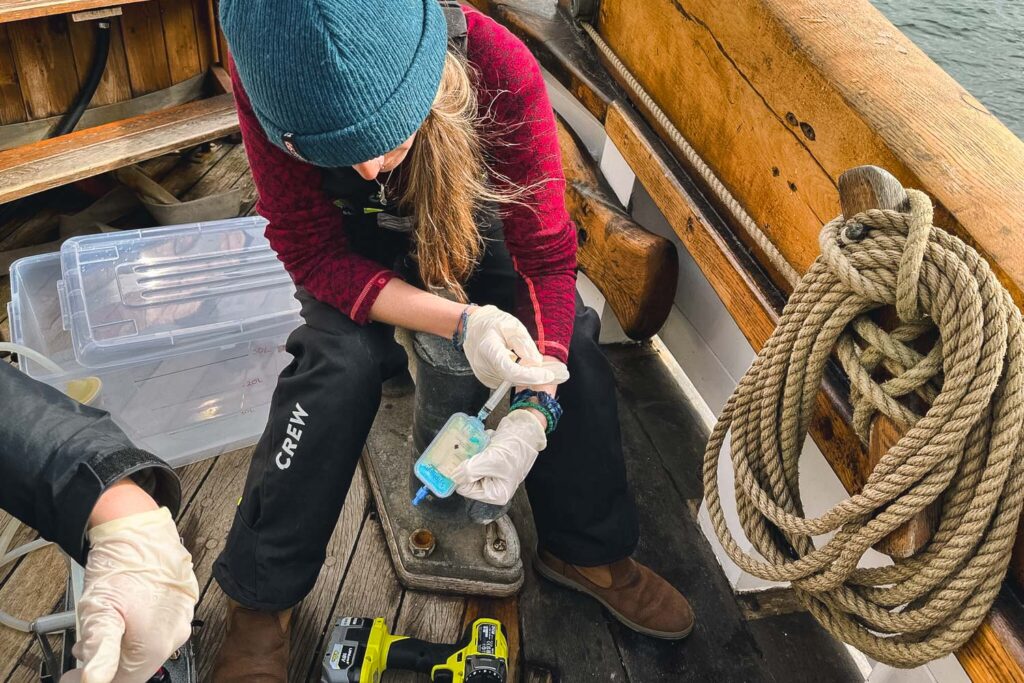
Supporting PhD students and ocean science
North Sailing has always been open to support science and conservation efforts. This time, we are thrilled to have Belén García Ovide in charge of the e-WHALE project on behalf of North Sailing. Belén has been a passionate marine biologist since she can remember. She has been guiding at North Sailing since 2017 and more recently works also as an environmental advisor. She is also the founder of the non-profit organization Ocean Missions, based in Húsavík, Iceland, that works in close cooperation with North Sailing. Belén believes that cooperating with science and supporting conservation efforts are fundamental pillars for North Sailing on the path towards sustainability and respect for the environment.
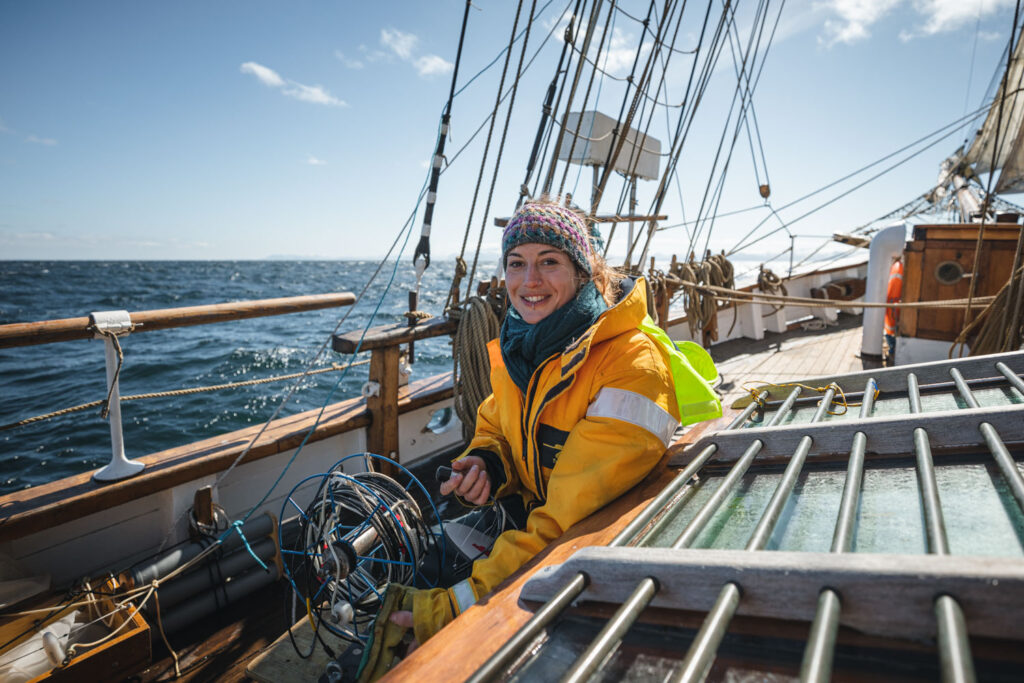
Citizen science and education onboard!
One of the objectives of the e-WHALE project is to investigate the public’s knowledge about eDNA and biodiversity and then assess their level of awareness following the onboard demonstrations. Feel free to participate in citizen science and help the research team by completing the surveys.

